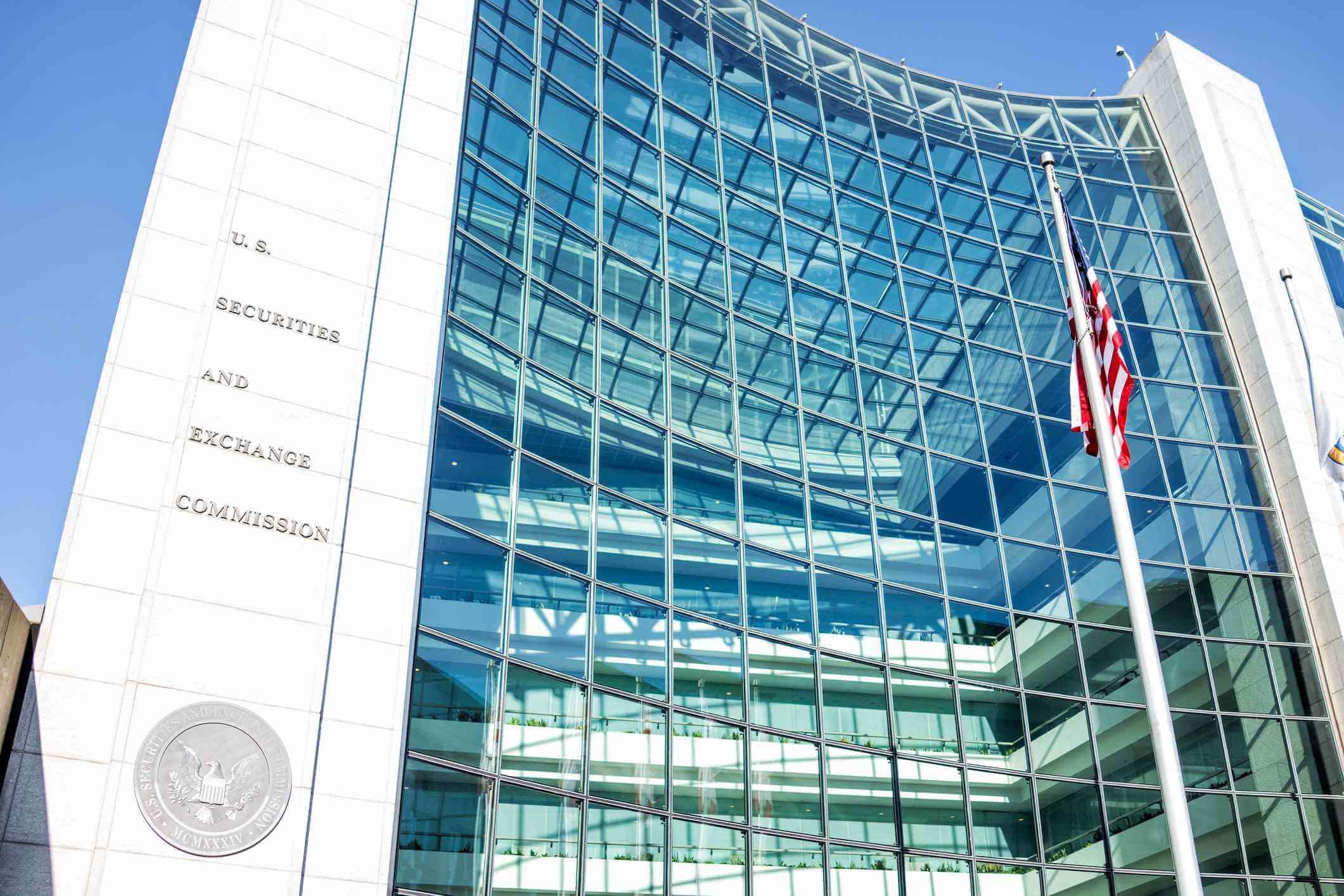Investors lose money in stocks daily, whether they have too many to keep track of or simply lack patience. These are honest and common mistakes, but when a broker, financial advisor, or financial institution encourages someone to make an investment decision by manipulating the financial markets or providing false information, those advisors can face criminal charges.
Securities fraud includes a wide array of illegal conduct on financial markets. The consequences of churning, Ponzi schemes, unauthorized or insider trading, and other securities violations can be severe. The skilled Atlanta lawyers with Griffin Durham Tanner & Clarkson LLC have years of experience defending the rights of individuals and organizations under investigation or being prosecuted for securities fraud.
You need a top-rated Atlanta securities fraud lawyer by your side. Griffin Durham Tanner & Clarkson LLC will help you clear your name of the allegations against you so you can get back to your life with your reputation intact. Connect with an experienced federal criminal defense attorney at our firm today when you contact us for a confidential consultation.
Common securities fraud cases we handle
Financial markets are some of the most complicated areas of law. For this reason, securities fraud can come in multiple forms. Most often, it occurs when advisers or brokers need to provide information or false information that is material in an investor’s decision to sell or buy securities. Your securities fraud litigation lawyer Atlanta is here to help you avoid the harsh criminal penalties associated with a conviction.
Securities fraud is often considered a type of white-collar crime. As such, the consequences of a guilty verdict could be life-changing. Even accusations of securities fraud could destroy your professional reputation. Fortunately, our securities fraud defense attorneys have significant experience handling nearly every type of securities fraud from private placement scams, omissions, and failure to disclose to fraudulent accounting practices, misrepresentation, and use of false offering documents. Our firm is ready to help you clear your name of these damaging allegations.
Churning
One of the most common types of securities fraud our clients have been charged with is churning. This occurs when a stockbroker with discretionary control of a client’s account begins aggressively selling or buying securities. The act of buying and selling securities for an investor in and of itself is not turning, however, these brokers will continue generating transactions for the sole purpose of boosting their commissions.
Unauthorized trading
Investors must give their brokers the authority to make changes in their accounts. However, when a stockbroker exchanges, buys, or sells securities without obtaining consent from their client, they have engaged in unauthorized trading or making unauthorized transactions. This is true even if the trades generated games for the investor, but it’s usually not discovered until investors suffer substantial losses which they seek justice for through legal action by the Financial Industry Regulatory Authority (FINRA).
Frontrunning
Frontrunning (also known as tailgating) involves entering a derivative, equity trade, futures contract, option, or security swap to advance your financial gains when you come into knowledge that has not been made known to the public. These types of significant pending transactions, if they had been made known to the public, would have a significant impact on the underlying security’s price.
Unsuitability
Stockbrokers and financial advisors have a fiduciary duty to act in their investor’s best interests. When brokers make investment recommendations that are unsuitable or inappropriate for an investor, brokers can be held accountable. For example, recommending an elderly investor purchase annuities that can take decades to mature may be unsuitable as they have already reached retirement age and would likely be investing conservatively.
Price and market manipulation
Market and price manipulation is a way of deceiving investors by artificially controlling or affecting the price of securities. Market manipulation is against the law but can be more difficult for the U.S. Securities and Exchange Commission (SEC) or FINRA to prove.
Malfeasance
Malfeasance in securities occurs when a broker, brokerage firm, or financial advisor intentionally sabotages an investor. If you are accused of malfeasance, not only could you face charges in criminal court, but a civil claim through FINRA and legal actions by the SEC as well.
Some examples of malfeasance include failure to perform duties as a brokerage firm or stockbroker or intentionally failing to make trades or sell when it is best for the investor. This is different from misfeasance, which involves attempting to fulfill their responsibilities but failing to do so, which is unintentional or accidental.
| Resource: Misfeasance vs. Malfeasance |
What are the different forms of securities fraud?
Securities fraud can come in multiple forms. Our firm consists of proven trial attorneys with extensive experience defending allegations of the following types of securities violations.
Committed by a company
Our team has handled a wide variety of securities fraud accusations committed by companies, including:
- Ponzi schemes
- Pyramid schemes
- Insider trading
- Advance fee fraud
- Pump and dump schemes
- High-yield investment fraud
- Microcap stock fraud
Insider trading
Insider trading is one of the most common types of securities fraud our clients face. It involves making trades and investor accounts based on information that is considered non-public or confidential. In many cases, insider trading must be proven by showing that the person tipping off the broker owed a confidential or fiduciary duty to the source of any non-public information and that the tipper received sizable financial gains for the jury to return a guilty verdict.
Third-party misrepresentation
Third-party misrepresentation involves misrepresenting material information by anyone other than investors, brokers, companies, or other involved parties. This can include financial institutions, intermediaries, mortgage brokers, escrow agents, appraisers, and other third parties. Third-party misrepresentation often involves new application fraud, false identity fraud, account takeover fraud, credit card fraud, and creating a false identity, also known as synthetic identity creation fraud.
What are the penalties for securities fraud?
If you are convicted of securities fraud in the criminal justice system, there are serious penalties you will be subject to. Your Atlanta securities fraud attorney will be responsible for reviewing the evidence that he had on the details of your case to craft the most powerful defense possible under the law.
The federal securities fraud statute, under 18 U.S.C. § 1348 states that if convicted, you could spend up to 25 years in a federal prison and be ordered to pay millions of dollars in fines.
However, these penalties could significantly increase when the state adds additional charges to your initial offense. For example, you could be charged with securities fraud, but the government could also opt to charge you with money laundering, mail fraud, and other crimes which could substantially increase the consequences of a conviction.
However, it is not only the criminal penalties you need to worry about. When cases are filed against you with FINRA or the SEC, you could face enforcement actions, be ordered to pay fines, be ordered to repay investors, be subject to additional accounting or monitoring, face debarment, and deal with the collateral consequences of a conviction. Some of these might include:
- Immigration or citizenship issues
- Loss of firearm rights
- Child custody or visitation issues
- Trouble obtaining employment
- Loss of professional licenses
- Probation restrictions
Securities investigations and enforcement actions
As part of your securities fraud allegations, the SEC may open up an investigation as well. Your securities from defense lawyer Atlanta will be by your side as the SEC conducts a private government investigation. During this time, they will:
- Review trading data
- Make a formal inquiry
- Examine brokerage records
- Conduct interviews with witnesses
Then, investigators will present the evidence they obtained before the SEC Commissioner who will determine whether the case should be referred to the Department of Justice for criminal prosecution, administrative action should be taken, or a case be filed in federal court. Most often, SEC investigators will begin looking into allocations of securities fraud after receiving tips from whistleblowers, market professionals, red flags and market trading data, newspaper stories, and even suspicious activity reports (SARS) filed by financial institutions.
Generally, SEC investigators will only move forward with an investigation if there is a significant potential for harm, the information received is reliable, and the alleged offense is still ongoing. Some of the most common securities law violations our clients have been investigated for by the SEC include insider trading, selling unregistered securities, market manipulation, and stealing investor funds.
Who gets investigated for securities fraud?
Nearly anyone can be accused of engaging in securities fraud. Most often, stock brokers, financial analysts, investors, government agencies, brokerage firms, and corporations have securities fraud investigations opened up against them. Your securities fraud lawyer Atlanta will be prepared to challenge the evidence obtained and prepare a compelling defense so you can dodge the fallout of a conviction.
How can an Atlanta securities fraud lawyer help me?
If we can show that you did not negligently or recklessly misrepresent material facts or omit necessary information, we may be able to get the securities fraud allegations against you dismissed. If the elements of the offense cannot be met, your case should not move forward through the criminal justice system.
The type of securities fraud you are accused of committing will determine which defense strategy is most suitable. For example, if you have been accused of insider trading, by introducing evidence that shows you made trades without being aware of non-public material information, we can show that you did not have knowledge of this confidential information and that the trades you made were entirely coincidental.
Depending on the strength of the government’s case against you, it may be in your best interest to work with the prosecutor to obtain a plea agreement. However, if we can get certain types of evidence excluded or deemed inadmissible, the prosecutor may be forced to dismiss your case entirely. You can find out more about which defenses are most likely to return a favorable outcome when you discuss the allegations against you with your Atlanta criminal defense attorney.
Ready to get started on a strong defense? Our Atlanta securities fraud lawyer can help.
Securities fraud allegations and criminal charges can permanently alter the course of your life. If you are found guilty, you could be facing harsh penalties including substantial fines, loss of your professional license, and even jail or prison time.
Take charge of your future and protect your reputation at all costs. Meet with a highly qualified and aggressive Atlanta securities fraud attorney at Griffin Durham Tanner & Clarkson LLC today. Schedule your confidential defense strategy session when you complete our secured contact form or call our office at (404) 891-9150 to explore potential viable defenses in your case.


